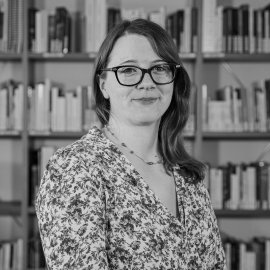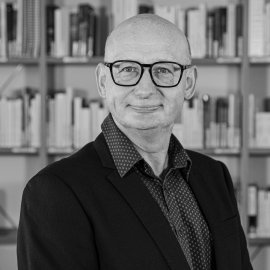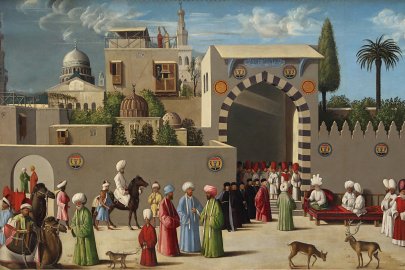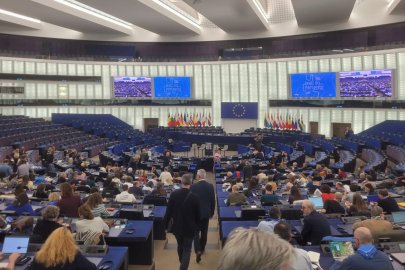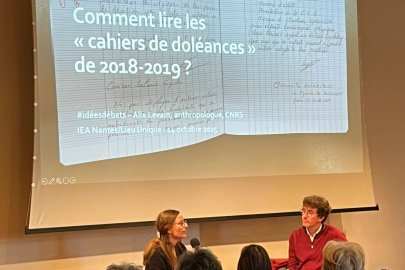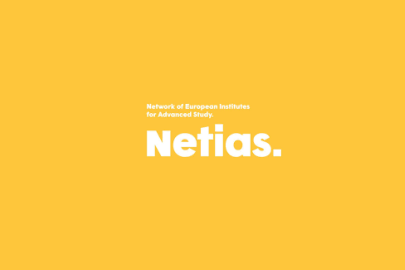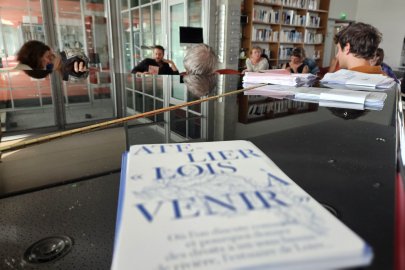On March 18 and 19, 2025, an international workshop was held in Nantes on diplomatic relations between Christian and Muslim worlds from the 15th to the 19th century. Organized by Florence Ninitte and Ferenc Tóth, former fellows of the Institute, the event reflects the Institute, which invites researchers to return the following year to lead a collective project. This model fosters exchange between fellows from different cohorts, encourages interdisciplinary dialogue, and strengthens both academic and human connections within the Institute’s community.
Entitled Co-habiting the Mediterranean World: Political, Economic, and Cultural Diplomacy between Christians and Muslims (15th–19th Centuries) and co-organized with the Centre for Diplomatic Archives in Nantes, the event brought together researchers from various countries and disciplines. Over two days of intense exchange—through presentations, discussions, and informal encounters—the Mediterranean was explored as a space of circulation, negotiation, and shared experience.
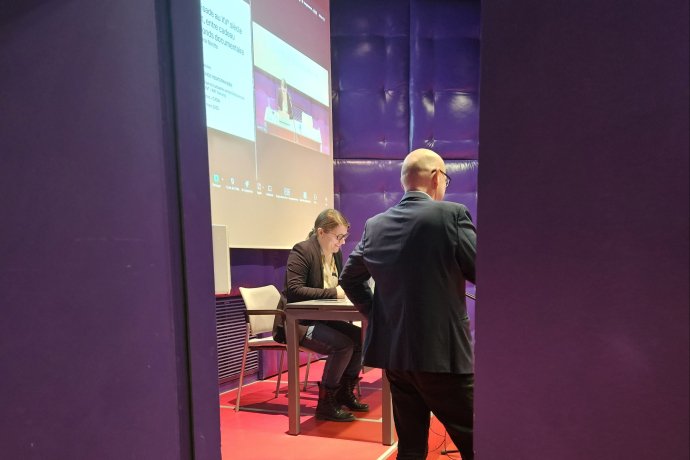
A Lasting Collaboration with the CADN
The first day took place at a key partner site, the Centre for Diplomatic Archives in Nantes (CADN). Thanks to the involvement of Agnès Chablat-Beylot, Bérangère Fourquaux, and Éric Lechevallier, participants were offered an immersive session combining a guided tour of the archive storage facilities with a presentation of original diplomatic documents. This opening of the collections, rooted in a long-standing tradition of welcoming researchers, created a unique opportunity to connect archival materials directly with the themes of the workshop.
An Interdisciplinary and Transnational Approach
Among the 22 participants were researchers affiliated with several French, Hungarian, and Italian institutions (Nantes Université, Université Paris 1 Panthéon-Sorbonne, HUN-REN, University of Szeged, University of Verona, CADN…), along with current fellows of the IEA and members of the non-academic public. The diversity of disciplines—including diplomatic history, art history, literature, anthropology, codicology, and Oriental studies—enabled a rich and nuanced exploration of the topic.
Several contributors presented original, unpublished work, confirming the workshop’s role as a springboard for new lines of inquiry and intergenerational dialogue. This exchange of perspectives was particularly valuable for early-career researchers, who had the opportunity to refine their approaches through conversations with more experienced scholars.
Two Days of Dialogue on Mediterranean Diplomacy
The workshop was structured around two main themes. The first focused on the key actors of diplomatic exchanges, examining their roles and diversity—including not only diplomats but also religious or ethnic minorities who played active parts in negotiations and inter-power relations of the time. The second explored the consequences of these exchanges, particularly the circulation of knowledge, objects, people, and the resulting cultural and technological transfers.
This broad framework allowed for diplomacy to be viewed not merely as a matter of statecraft, but as a complex network of mediation and transmission, rooted in the long and diverse history of the Mediterranean region.
Towards Future Publications and Collaborations
Beyond the formal program, numerous informal discussions extended the conversations and sparked potential partnerships between participating institutions. In the concluding session, the organizers raised the possibility of a collective publication, reflecting both the depth of the exchanges and the shared desire to sustain this collaborative momentum.
